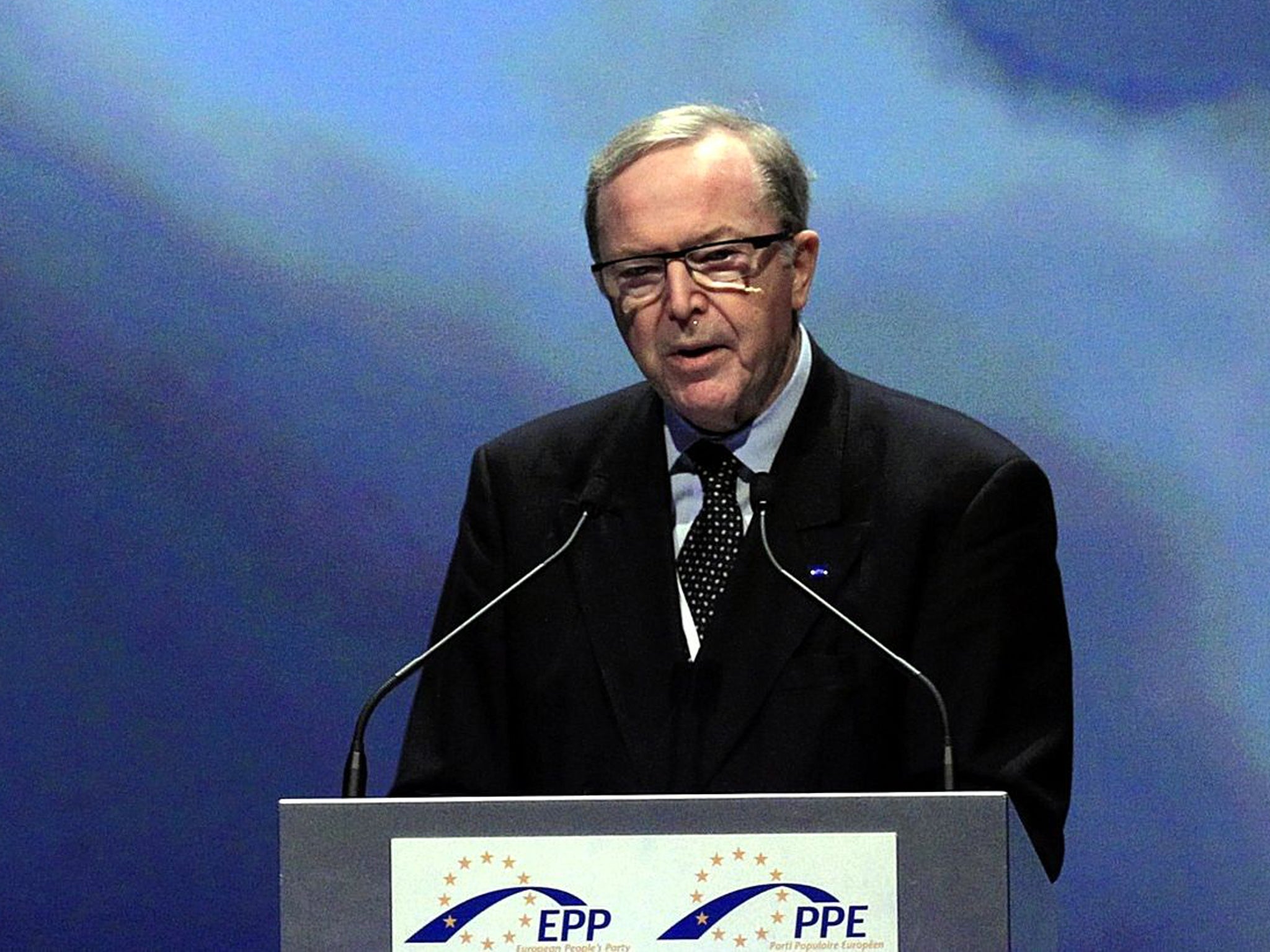Wilfried Martens: Politician who led nine Belgian governments

Wilfried Martens led nine Belgian governments and the European Union's Christian Democrat group. Regarded as a somewhat grey figure, he was attacked by Margaret Thatcher in her memoirs as weak, thanks in part to the occasion when a minor official from one of Belgium's coalition minority parties, working at a ministry one weekend, apparently refused to sell ammunition to Britain during the Falklands conflict. But elsewhere the Iron Lady expressed her admiration for Martens, and with his wily sense of realpolitik and the art of compromise he survived as prime minister for 12 years, from 1979 to 1991, a year longer than Thatcher herself, with only a brief break in the early 1980s.
He led governments with socialists, liberal and grand coalitions and proved capable of keeping the volatile factions in the nation together. "You can't be prime minister in Belgium, you can't be a political star unless you have in you the profile of the population," he wrote in his autobiography. "I have been reading that I am not a charismatic leader – that's true, I think. But I also think I have the profile of the Belgians. It's a working population. A form of modesty is important ... You can't say, 'I'll try to think like a Belgian.' You have it or you haven't."
When his death was announced, leading members of both his party and the opposition lauded him as a tireless leader who kept his nation of Dutch- and French-speakers together while giving the two linguistic regions ever more autonomy. Prime Minister Elio Di Rupo, a French-speaking socialist, said that "Belgium lost one of its most prominent politicians."
Martens also helped found the European People's Party and led the EU's Christian Democrat group for almost two decades. He worked for greater European integration based on consensus politics. According to the EPP chairman Joseph Daul, he "made a lasting mark on Europe and beyond."
A lawyer and well-respected negotiator, he was president from 1965 until 1971 of the youth wing of the Christian People's Party and served as president from 1972 until 1979. Elected to the Belgian lower house in 1971, he served as a representative until elected senator in 1991, retiring as a legislator in 1994. In the fractious world of Belgian politics he proved a popular figure. As prime minister he survived elections in 1982 and 1987 that focused on economic policy and the language dispute between the Walloons and the Flemish.
Born in Sleidinge in 1936, he endured, he recalled in his autobiography, a childhood of poverty, illness and his father's death when Wilfried was seven. He first became involved in politics at secondary school when as leader of a Catholic movement campaigning for the purity of the Dutch language. He studied law at the University of Leuven, where he was active in the Flemish Catholic Students Association, and after graduating worked for the cause of Flemish-speaking Belgians, practising law in Ghent.
He joined the Christian People's Party in 1962, rising quickly and becoming chairman in 1972 and entering parliament in 1974. He had no ministerial experience when he was chosen as prime minister by a fragile coalition of five parties. He survived numerous political crises, most caused by tensions between the Flemish-speaking and French-speaking factions of the nation. There was also strong opposition to his austere programme for economic reform, although the EU President Herman Van Rompuy, also a Dutch-speaking Belgian Christian Democrat, said, "He lifted our country out of a morass." He was succeeded in office in March 1992 by Jean-Luc Dehaene following a period of uncertainty caused by inconclusive elections the previous November.
As much as for his political ambition, he was also renowned for a colourful private life, which included three marriages and five children. He appeared to have committed political suicide in 1999 when he refused to accept second place in the Christian Democrat Party's list of candidates for that year's European elections, which would have put him behind behind his former mistress, Miet Smet, Minister of Labour. The party would not budge – one party figure said, "We didn't get rid of him to Europe to allow him back in now" – and while he remained president of the EPP he was forced to retire from the European Parliament. "My public life has lasted 40 years," he said. "I have given up everything for it and I would hesitate to start all over again, not because of political defeat but because of the enormous wounds people have inflicted on me.'
In 1998 he had left his wife of 30 years, Lieve Vershroeven, and quietly married his lover, Ilse Schouteden, who he took on a cycling honeymoon. The couple had twins, but Martens famously forgot their names during an interview, calling them by the names of his grown-up children. In 2007 Martens divorced Schouteden – who had been Smet's secretary – and the following year married Smet.
He had suffered from heart problems, and in August he entered hospital with blood-clotting problems.
Wilfried Achiel Emma Martens, politician: born Sleidinge, Belgium 19 April 1936; married 1968 Lieve Vershroeven (divorced 1998; two daughters), 1998 Ilse Schouteden (divorced 2007; two daughters, one son, and one stepson), 2008 Miet Smet; died Lokeren, Belgium 10 October 2013.
Subscribe to Independent Premium to bookmark this article
Want to bookmark your favourite articles and stories to read or reference later? Start your Independent Premium subscription today.

Join our commenting forum
Join thought-provoking conversations, follow other Independent readers and see their replies